How to choose the best Wi-Fi router for home use? Firstly, consider the router’s speed, range, and security. With these factors in mind, you can make an informed decision about which router will meet your needs.
Having a reliable Wi-Fi connection is essential for most households. With so many options available, it can be challenging to choose the best router for your home. Factors to consider include speed, range, security, and budget. The router’s speed indicates how quickly it can transmit data, while the range determines how far the signal can reach.
Security features such as firewalls, parental controls, and guest network options are also important. Finally, consider your budget and choose a router that offers the best value for your money. By taking these factors into account, you can select a router that will provide fast, reliable, and secure Wi-Fi for your entire household.
After using the TP-Link AX5400 WiFi 6 Router (Archer AX73) for some time now, I can confidently say that it is one of the best routers out there for home use.
Introducing The Importance Of Choosing A Good Wi-Fi Router
In this day and age, Wi-Fi routers have become an essential part of our daily lives. Most of us have more than one device that requires an internet connection, and a good Wi-Fi router can help us stay connected at all times.
However, not all routers are the same, and it’s important to choose the best one for your home. We’ll be discussing the importance of choosing a good Wi-Fi router, the problems that can arise from inferior routers and the benefits that come with upgrading to a better one.
The Role Of Wi-Fi Routers In Modern Homes
A Wi-Fi router is a device that sends a wireless internet signal to different devices in your home, such as laptops, smartphones, and smart televisions. It acts as a central hub for your internet connection. The role of Wi-Fi routers in modern homes has become increasingly important as more and more devices require an internet connection.
It allows multiple devices to connect to the internet without the need for any additional cables or wires, making it a convenient and practical option for daily use.
Poor Wi-Fi Signals And Connectivity Issues In Homes With Inferior Routers
Inferior Wi-Fi routers can result in poor Wi-Fi signals and connectivity issues, making it difficult for users to stay connected to the internet. This can be due to a number of reasons, such as outdated technology, inaccurate placement, or interference from other devices.
The result is that users may experience slow internet speeds, dropouts, or inconsistent connections, leading to frustration and a negative user experience.
Benefits Of Improving Wi-Fi Router Quality For Home Use
Upgrading to a better Wi-Fi router can resolve the issues mentioned above and provide a variety of benefits. Some of these benefits include:
- Faster internet speeds and improved connectivity
- Consistent signal strength and coverage
- Reduced lag and buffering time when streaming online content
- Increased security features to prevent unauthorized access
- Access to advanced features such as parental controls and quality-of-service settings
Choosing the best Wi-Fi router for home use is crucial in ensuring a positive and consistent user experience. A good router will offer faster internet speeds, stronger connectivity, and advanced security features that can improve the overall quality of life for its users.
It’s important to consider the features and benefits of different routers when making your choice to ensure that you find the best one for your needs.
Understanding The Key Features Of Wi-Fi Routers
Wi-Fi routers are an essential component of your home network, providing a wireless connection to all your devices. When choosing the best Wi-Fi router for your home, several crucial features should be considered to ensure that you get the most out of your network.
Let’s explore these key features in detail.
The Importance Of Wi-Fi Standards And Compatibility With Your Devices
Wi-Fi standards determine the speed, range, and capacity of your home network. Different wi-fi standards include 802. 11 b, g, n, ac, and ax, with each one providing improved features compared to its predecessor. When choosing a Wi-Fi router, ensure that it supports the latest Wi-Fi standards for optimal performance.
Also, check the compatibility of your devices with the Wi-Fi router, as some older devices may not support the latest Wi-Fi standards.
Frequency Bands: 2.4 Ghz Vs. 5 GHz
Wi-fi routers operate in two frequency bands: 2. 4 GHz and 5 GHz. The 2. 4 GHz band offers a more extended range but slower speeds, while the 5 GHz band provides a shorter range but faster speeds. When selecting a Wi-Fi router, consider the frequency band that meets your specific needs.
For example, the 2. 4 GHz band is an ideal choice for large homes with multiple floors, while the 5 GHz band is better suited for smaller homes with fewer obstructions.
Single Band Vs. Dual-Band Vs. Tri-Band Routers
A Wi-Fi router’s band may be single, dual, or tri-band. Single-band routers use only the 2. 4 GHz band, while dual-band routers support both the 2. 4 GHz and 5 GHz bands at the same time. Tri-band routers, on the other hand, provide an additional 5 GHz band, ideal for homes with multiple devices.
When choosing a Wi-Fi router, consider the number of devices in your home that require an internet connection and select a router that meets your needs.
Range And Coverage Capabilities
Wi-Fi routers have unique range and coverage capabilities, which determine the reach of your network. The range is the maximum distance between your device and the router, while the coverage is the area covered by the router’s signal. When choosing a Wi-Fi router, consider the size and layout of your home and select a router that provides adequate coverage for all your devices.
Security And Encryption Protocols
Security is a significant concern when using a Wi-Fi router. The router should have robust security features that protect your network and devices from hackers and unauthorized access. Encryption protocols such as WEP, WPA, and WPA2 provide additional security to your network.
When selecting a Wi-Fi router, ensure that it supports the latest encryption protocols to keep your network safe from intruders.
Antennas And Their Role In Signal Strength
Antennas play a crucial role in determining the signal strength of your Wi-Fi router. Wi-Fi routers with more antennas provide improved signal strength and coverage. There are internal and external antennas, with external antennas providing better coverage and range. When choosing a Wi-Fi router, consider the number and type of antennas, depending on your home’s size and layout.
Selecting the best Wi-Fi router for your home requires careful consideration of several key features such as Wi-Fi standards, frequency bands, range and coverage capabilities, security and encryption protocols, and the number and type of antennas. By considering these factors, you can ensure that you get the most out of your home network and enjoy seamless internet connectivity for all your devices.
Assessing Your Wi-Fi And Internet Service Provider Needs
Analyzing Your Home Wi-Fi Needs Based On The Number Of Devices And Users
Before you purchase a Wi-Fi router, assessing your home Wi-Fi needs is essential. A Wi-Fi router with a low suitability for your needs will result in slow internet speeds and frustrating connectivity issues. Here are some factors you should consider when analyzing your home Wi-Fi needs based on the number of devices and users:
- The number of users who will connect to Wi-Fi: The more people who will be using your Wi-Fi router, the higher the capacity you will need. If you have a family of four or more people, you should consider a router with higher capabilities.
- The number of devices that will connect to Wi-Fi: Determine how many devices, such as smartphones, tablets, laptops, gaming consoles, smart speakers, or thermostats, will connect to Wi-Fi. If you have several devices, you should purchase a router with higher capabilities and sufficient coverage.
Factors To Consider Before Investing In A High-End Router
Investing in a high-end router can help improve your home Wi-Fi experience, but it’s essential to consider several factors before doing so to avoid overspending. Here are some of the factors you should consider before investing in a high-end Wi-Fi router:
- Internet service provider (ISP): Ensure that your ISP can support the router’s capabilities and that you have the bandwidth to support it.
- Your home’s size: The Wi-Fi router’s range should provide sufficient wireless strength to cover your home. Consider purchasing wireless range extenders or a mesh network to extend your home’s coverage.
- Your overall home network: Ensure that your existing network devices, such as modems and switches, are compatible with the high-end router. If not, consider replacing them.
- Your budget: A high-end Wi-Fi router offers better wireless connectivity and additional features, but it comes at a cost. Determine the amount you are willing to spend before making your purchase.
The Need For High Bandwidth Internet Connections
Bandwidth is the maximum amount of data that can be transferred via an internet connection within a fixed amount of time. Many internet tasks require high bandwidth. As you invest in a Wi-Fi router, consider the following bandwidth factors:
- High bandwidth internet connections: A Wi-Fi router’s performance is limited by the quality of the internet connection it is connected to. Ensure you have high-speed internet to maximize the router’s performance.
- Gaming and streaming: If you’re an avid gamer or streamer, consider a Wi-Fi router designed for faster download speeds and lower latency to maximize your gaming and streaming experiences.
- Video conferencing: If you frequently use video conferencing tools such as Zoom or skype, ensure that your Wi-Fi router can handle the necessary bandwidth.
- Multiple devices: The more devices connected to your Wi-Fi network, the more bandwidth you will require.
By considering these factors, you can ensure that the Wi-Fi router you choose is tailored to your home’s needs, providing the best internet performance for your entire household.
Understanding The Different Types Of Wi-Fi Routers
Wi-Fi routers are essential equipment in today’s digital world. We use them to connect our smartphones, laptops, and other smart devices to the internet and enjoy seamless browsing and streaming experiences. However, choosing the right Wi-Fi router can be confusing, given the various types available in the market.
In this section, we will discuss the primary types of Wi-Fi routers, including modem routers vs. standalone routers, mesh Wi-Fi systems, and compatibility issues with internet service provider requirements.
Modem Routers Vs. Standalone Routers
Here, we’ll highlight some points on modem routers vs. standalone routers to make it easier for you to make an informed decision.
- Modem routers are two-in-one devices combining the functions of a router with a modem. They connect to your internet service provider (ISP) network and broadcast the Wi-Fi signal to your devices. A modem router eliminates the need for a separate modem, making it an optimal choice for those who don’t want many devices in their homes.
- Standalone routers, on the other hand, only function as routers. They require a separate modem to connect to the ISP network before broadcasting the wi-fi signal to connected devices. These routers offer faster and more reliable connectivity and are more flexible, with more advanced features and settings.
Mesh Wi-Fi Systems And Their Role In Home Networking
Mesh Wi-Fi systems are an alternative to traditional Wi-Fi routers. Here are a few points to help you understand what they are and how they work:
- A mesh Wi-Fi system is made up of multiple nodes that work together to form a mesh network, which provides seamless Wi-Fi coverage throughout your home.
- The primary advantage of a mesh Wi-Fi system over a traditional router is that the mesh technology eliminates dead zones and ensures faster, more reliable coverage.
- Mesh Wi-Fi systems are more expensive than traditional routers, but they are worth the investment if you have a large home with multiple floors or thick walls that interfere with the Wi-Fi signal.
Compatibility Issues And Internet Service Provider Requirements
Before buying a Wi-Fi router, it’s important to ensure that it’s compatible with your ISP’s network requirements. Here are a few things to keep in mind:
- Check the ISP’s recommended router list to ensure that the router you’re considering is compatible with your network.
- Some ISPs require specific router modes or settings, such as PPPoE or VLAN tagging. Ensure that your router supports these modes, or you risk having connection issues.
- If in doubt, consult with your ISP’s customer support team to understand their specific network requirements.
Choosing the best Wi-Fi router for your home requires careful consideration of your needs and the available options in the market. Understanding the different types of Wi-Fi routers, including modem routers vs. standalone routers, mesh Wi-Fi systems, and compatibility issues with your internet service provider’s requirements, can help you make an informed decision that meets your needs.
Choosing The Right Wi-Fi Router Brand
A Review Of The Top Wi-Fi Router Brands In The Market
When it comes to purchasing a Wi-Fi router for your home, one of the most crucial decisions is choosing the right brand. With so many different brands in the market, it can be overwhelming to make a decision. Below is a review of the top Wi-Fi router brands to help you make an informed purchase decision:
- Netgear: Netgear is one of the most popular Wi-Fi router brands in the market, known for producing high-quality and reliable routers. Their routers come with advanced features such as beamforming technology, remote access, and parental controls.
- Asus: Asus is another top Wi-Fi router brand that produces high-end routers with advanced features such as AImesh technology, MU-MIMO, and QoS for a lag-free online gaming experience.
- Tp-link: Tp-link is a budget-friendly option that doesn’t compromise on quality. Their routers come with features like guest network access, parental controls, and easy setup.
- Google Nest: Google Nest produces routers with an easy-to-use interface, advanced security features, and compatibility with smart home devices.
- Linksys: Linksys is known for producing routers with faster speeds and wider coverage. Some of their models come with advanced features such as mesh networking and built-in antivirus protection.
Assessing Brand Reliability And Durability
When choosing a Wi-Fi router brand, two critical factors to consider are reliability and durability. Here are some points to keep in mind to assess these factors:
- Research the brand’s reputation: Look for customer reviews and ratings on different websites to see what people are saying about the brand.
- Check for warranties: Most routers come with a warranty, but it’s important to check what the warranty covers and for how long.
- Consider the brand’s history: How long has the brand been in the market, and what kind of reputation does it have?
- Look for customer support: Check if the brand offers reliable customer support, in case you experience any issues with the router.
Expert Reviews And Customer Testimonials
Expert reviews and customer testimonials can provide valuable insights into the performance, reliability, and usability of different Wi-Fi router brands. Here’s what to keep in mind:
- Look for expert reviews: Expert reviews from reputable sources can give you an idea of the features, pros, and cons of different brands and models.
- Check customer testimonials: Reading customer testimonials can provide insights into real-world experiences with the product.
- Be aware of bias: Sometimes, reviews can be biased or paid for by the brand. Look for reviews from different sources to get a more balanced perspective.
Comparing Wi-Fi Router Prices
A Price Comparison Of The Best Wi-Fi Routers In The Market
Buying a Wi-Fi router can be overwhelming, considering the variety of options available in the market. Different models offer different features at different prices. In this section, we’ll compare the prices of the best Wi-Fi routers available in the market, to help you make an informed decision.
- Netgear nighthawk ax12 – $499.99
- Asus rt-ax88u – $349.99
- Netgear orbi rbk50 – $299.99
- Tp-link archer c2300 – $149.99
- Asus rt-ac88u – $227.67
- Tp-link archer a7 – $76.49
Note that these prices are subject to change and are based on the current market rates. Also, the prices may vary depending on the features and additional accessories offered.
Value For Money And Return On Investment
Apart from price, you should also consider the value for money and return on investment while buying a Wi-Fi router. Here are a few key points to keep in mind:
- Consider the size of your home and the number of devices that need to be connected to the network. Opt for a router that fits the criteria to avoid overpaying for features you don’t need.
- Look for Wi-Fi routers with parental controls, guest networks, and other value-added features to make the most of your investment.
- Investing in a high-end router that can last for years and handle the latest technology is a smart decision. Cheaper routers may cost less, but they may need to be replaced in a year or two, resulting in added expenses.
Best Time Of Year To Buy Wi-Fi Routers And Finding The Best Deals
Timing is everything when it comes to making a purchase. Here are some tips to help you find the best deals on Wi-Fi routers:
- Sales promotions and discounts are offered on major holidays, such as Black Friday, cyber Monday, and Christmas. Keep an eye out for these events.
- Retailers and e-commerce websites offer their best deals during the off-season. Consider buying a router during the offseason and enjoy lower prices.
- Check for refurbished or used routers, but do your research first to ensure you’re getting a product that works and is backed by a manufacturer’s guarantee.
- Read customer reviews and compare prices from various sources to make sure you’re getting the best deal possible.
Remember that buying a Wi-Fi router isn’t a one-and-done decision. Routinely upgrading your router can help ensure that your home network is fast, reliable, and secure. So, invest in a high-quality router that can go the distance and meet your needs.
Compatibility With Smart Home Devices
How To Choose The Best Wi-Fi Router For Home Use?
Are you looking to upgrade your Wi-Fi router to create a smarter home? With a smart home, you can control your lights, thermostat, and even your coffee machine with just your voice or a tap on your phone. However, before you dive into the world of smart homes, you need to invest in the right Wi-Fi router that is compatible with all your smart devices.
We will discuss the need for compatibility with smart home devices and essential features to look for in Wi-Fi routers for smart home use.
The Need For Compatibility With Smart Home Devices For Home Automation
Smart home devices rely on solid Wi-Fi signals to receive and respond to your commands, and that’s why compatibility with smart home devices is a key factor to consider when choosing a Wi-Fi router. If your Wi-Fi router doesn’t support the smart home devices you already have or plan to buy, you will have a hard time automating your home.
Here are the reasons why compatibility is paramount:
- A router that is not compatible with your smart devices may not support the latest Wi-Fi protocols such as 802.11ac, which means slow and intermittent wireless connectivity.
- Smart home devices use a significant amount of bandwidth that can easily overwhelm a router with limited performance capacity.
- Incompatible routers can also compromise the security of your home network and expose your smart devices to cyber threats.
The Role Of Wi-Fi Routers In Smart Home Setups
Your Wi-Fi router is the backbone of your smart home automation. It connects all your devices to the internet, allowing them to interact with each other. Here are some roles that Wi-Fi routers play in a smart home setup:
- They create a wireless network that enables communication between devices.
- They provide a secure and reliable internet connection that is necessary to control smart home devices remotely.
- They allow for easy setup and configuration of your smart devices using the relevant app.
- They guarantee that all your smart home devices work seamlessly and efficiently.
Essential Features To Look For In Wi-Fi Routers For Smart Home Use
When shopping for a Wi-Fi router for smart home use, it is important to consider the following features:
- Wi-Fi protocol: Look for routers that support the latest Wi-Fi protocols (802.11ac), which guarantee faster data transfer rates and a wider coverage range.
- Dual bands: Wi-Fi routers with dual bands provide you with more options to connect your smart devices. Devices that require a 2.4 GHz connection can connect to one band while those that require a higher bandwidth (such as streaming devices) can connect to the other band.
- Router range: Choose a router with a broad range that can cover your entire home. You can also install range extenders or mesh systems to ensure every corner of your home has a consistent Wi-Fi signal.
- Quality of service (QoS): QOS settings allow you to prioritize your internet bandwidth based on the specific tasks you perform. For instance, you can prioritize streaming media over browsing the internet or online gaming.
- Security features: A router with robust security features such as wpa2 encryption and firewalls ensures that your smart home devices are not exposed to cyber threats.
- Guest network: If you have visitors who need to connect to the internet, a guest network lets them use the internet without accessing your main network.
- Parental controls: Parental controls enable you to set limits on internet access for your children or block inappropriate content.
- Compatibility: Ensure that the router is compatible with all the smart home devices you intend to connect to your network.
- Brand reputation: Choose Wi-Fi routers from reputable brands that have a history of providing reliable products and excellent customer support. You can check online reviews to determine which brands have the best reputation.
- Price: The best Wi-Fi routers for smart home use may not be the cheapest, but investing in a high-quality router will save you from headaches and frustrations in the future.
Getting the right Wi-Fi router that is compatible with your smart home devices is one of the critical steps to creating a smart home. Carefully consider the essential features mentioned above, and you will be on your way to a fully automated home.
Optimal Setup And Placement Of Wi-Fi Routers
The Ideal Location For Wi-Fi Routers In A Home Setup
The placement of a Wi-Fi router is a crucial factor in determining the quality of the wireless signal within your home. Here are some tips to ensure optimal placement of the router:
- Place the router in the center of your living space, where it can distribute the wireless signal equally in all directions.
- Avoid placing the router in a basement, as the signal gets blocked by concrete and metal objects.
- Keep the router elevated, such as on a shelf to reduce interference from other devices.
- Avoid placing the router close to metal objects, magnets, or microwaves as these disrupt the wireless signal.
Strategies For Maximizing Range And Coverage In Different Homes
The range of Wi-Fi signals is limited, and the size and shape of your home can affect its coverage. Here are some ways to maximize your Wi-Fi coverage:
- Purchase a Wi-Fi range extender or repeater, which works by amplifying the signal.
- Use a mesh network system that spreads satellite units throughout your home to cover hard-to-reach areas.
- Invest in a high-gain antenna, which broadcasts a stronger signal that goes farther.
- Avoid obstructions such as walls, mirrors, and metal objects, which can absorb or weaken the wireless signal.
Managing Interference And Overlapping Signals From Other Devices And Networks
Your Wi-Fi signal may often overlap with other wireless networks and electronic devices in the vicinity, causing signal interference. Here are a few tips to manage this interference:
- Change the channel or frequency of your Wi-Fi as overlapping signals from nearby networks often lead to network congestion, resulting in unstable or slower speeds.
- Move any electronic devices away from the router that could cause interference, such as cordless phones, TVs, and gaming consoles.
- Keep your router firmware up to date, which can help improve Wi-Fi performance and address any signal interference issues.
- Invest in a dual-band router that supports both 2.4ghz and 5ghz bands to avoid congestion on the heavily used 2.4ghz signal.
Troubleshooting Wi-Fi Router Problems
When it comes to choosing the best Wi-Fi router for home use, there are a few things to consider. One of the most crucial aspects is troubleshooting potential issues that may arise. Here, we discuss some of the most common problems with Wi-Fi routers and their solutions, understanding and managing network congestion, and accessing and managing router settings for better performance and reliability.
Identifying Common Wi-Fi Router Problems And Their Solutions
- Slow internet or connectivity problems can arise due to outdated firmware or interference from other devices.
- Resetting or updating the firmware and relocating the router to a more centralized location can help.
- Inadequate security measures can increase the risk of unauthorized access.
- Enabling wpa2 encryption and changing passwords regularly can prevent these issues.
- Signal interference can hamper connectivity and performance, especially in heavily populated areas.
- Changing channels or using range extenders can help resolve these problems.
- Outdated or failing hardware such as cables can cause intermittent issues.
- Replacing the equipment or upgrading can solve the problem.
Understanding And Managing Network Congestion
- Heavy bandwidth usage often slows down Wi-Fi speeds.
- Limiting the number of devices connected or prioritizing certain devices can help manage congestion.
- Setting up a quality of service (QoS) to prioritize traffic can ensure smooth streaming and browsing.
- Usage metering tools can help monitor and manage data usage.
Accessing And Managing Router Settings For Better Performance And Reliability
- Knowing and customizing your router settings can help improve performance and reliability.
- Accessing the router settings through the browser and customizing settings such as channel width, transmission power, and Wi-Fi standards can help optimize Wi-Fi performance.
- Disabling unused features can also free up resources and improve performance.
Whether you are experiencing slow internet, network congestion, or issues related to hardware or outdated firmware, there are many ways to troubleshoot and manage Wi-Fi router problems effectively. By learning how to manage congestion and access router settings, you can improve performance and reliability and optimize your home Wi-Fi experience.
Future-Proofing Your Wi-Fi Router
Understanding The Technological Advancements In The Wi-Fi Router Industry
As technology continues to evolve, so do the capabilities of Wi-Fi routers that help us stay connected. Here are some key advancements to consider when choosing a router:
- Wi-Fi 6: Also known as 802.11ax, Wi-Fi 6 is the latest and fastest Wi-Fi standard in the market. Wi-Fi 6 brings improvements in speed, connectivity, and efficiency over its predecessor, Wi-Fi 5 (802.11ac).
- Dual-band or tri-band frequencies: Dual-band routers operate on both 2.4ghz and 5ghz frequencies, while tri-band routers have an additional 5ghz frequency. This allows for more bandwidth and less interference from other devices.
- Beamforming: With beamforming, the router focuses its signal directly on the device being used, which improves speed and connectivity.
- Mu-mimo: Multi-user, multiple input, multiple output allow the router to communicate with multiple devices simultaneously, particularly useful in households with multiple devices being used frequently.
The Need To Future-Proof Your Router To Avoid Frequent Upgrades
Investing in a high-quality, advanced router that will last for years to come can save you plenty of money and headaches in the long run. Here are some reasons why you should future-proof your router:
- Compatibility with new devices: As technology advances, new devices will require updated router standards; upgrading your router now will ensure that it’s compatible with all new devices you might purchase in the future.
- Improved speed and connectivity: Newer routers are designed to handle higher speeds, increase bandwidth and minimize interference.
- Security: Older routers may have outdated security settings that could expose your network to hacking and malware attacks.
Predictions For The Future Of Wi-Fi Networking And Router Technology
Wi-fi technology is advancing at a faster pace than ever before and the future possibilities are endless. Here are some predictions for the future of Wi-Fi networking and router technology:
- Wi-Fi 7: The next generation of Wi-Fi technology is already in the works. Wi-Fi 7 is set to have even greater speeds, capacity, and better performance than the current regular Wi-Fi standards.
- Mesh network routers: Instead of a single router, mesh network routers cover more area by having multiple routers working together, eliminating dead zones, and providing seamless coverage in large households.
- Internet of Things (IoT) devices: More and more devices are added to the Internet of Things, and router technology will likely evolve to adapt to the unique network needs of an IoT environment.
- Artificial intelligence (AI): AI can help routers detect and fix issues on their own, making customizing settings even easier and reducing the likelihood of network outages.
Investing in a future-proof router now will provide better connectivity, security, and a more consistent experience for everyone connected to the internet.
Evaluating Customer Support And Warranty Options
The Role Of Customer Support In Buying And Maintaining Wi-Fi Routers
Having access to reliable customer support is essential when it comes to purchasing and maintaining your Wi-Fi router. Here are some key points to keep in mind:
- Customer support channels: When researching routers, make sure to check the available channels for customer support. Look for options like phone, email, and live chat. Having multiple channels available will increase the likelihood of resolving any issues quickly.
- 24/7 support: Choosing a router with 24/7 customer support can be extremely beneficial. You never know when a problem will arise, and having access to support at any time can save you a lot of frustration.
- Technical expertise: The customer support team should have technical expertise and knowledge about the router itself. They should be able to address any technical issues and provide solutions in a timely manner.
Understanding Your Warranty Options And Coverage
No matter what kind of router you’re purchasing, it’s important to understand the warranty options and coverage. Here’s what you need to know:
- Length of warranty: The length of the warranty is important to consider. The longer the warranty, the more peace of mind you’ll have knowing your investment is covered.
- Parts and repairs covered: Make sure to carefully review what is included in the warranty, including which parts and repairs are covered. Some warranties may only cover the cost of parts, while others may cover repairs as well.
- Manufacturer’s warranty vs. extended warranty: Manufacturer warranties typically come with the router for free, while an extended warranty can be purchased for an additional fee. Make sure to evaluate whether or not an extended warranty is worth the extra cost.
Best Practices For Extending The Life Of Your Router
Here are some tips for prolonging the life of your router:
- Regular maintenance: Routinely check for software updates and apply them as soon as they become available. This will help ensure the router stays up-to-date and secure.
- Proper positioning: The location of the router can have a significant impact on its performance. Position the router in a central location and make sure it’s not covered by any obstacles or electronics that could interfere with the signal.
- Avoid overheating: Routers can overheat, which can cause performance issues or even damage the device over time. Ensure the router has enough space to breathe, and avoid placing it in a confined or overheated space.
By following these guidelines for evaluating customer support, understanding warranty options, and extending the life of your router, you’ll maximize your router’s lifespan and overall functionality.
Frequently Asked Questions On How To Choose The Best Wi-Fi Router For Home Use?
What Is A Wi-Fi Router?
A Wi-Fi router is a device that delivers an internet connection throughout your home wirelessly.
Why Do I Need A Wi-Fi Router?
You need a Wi-Fi router to connect devices like smartphones, laptops, and tablets to the internet wirelessly.
What Is The Best Wi-Fi Frequency Band?
The 5ghz band is the best Wi-Fi frequency for fast speeds and minimal interference.
What Is The Wi-Fi Range?
The wi-fi range is the distance a router can maintain a stable connection between the device and the network.
What Is A Mesh Wi-Fi System?
A mesh Wi-Fi system consists of several satellites that work together to provide a seamless Wi-Fi experience throughout your home.
What Is A Guest Wi-Fi Network?
A guest Wi-Fi network is a separate network that allows visitors to access the internet securely without accessing your primary network.
How Many Antennas Should My Router Have?
The number of antennas on a router is not a good indicator of its performance. Focus on other factors like wi-fi protocol and frequency band.
What Is Mu-Mimo Technology?
Mu-mimo technology allows multiple devices to receive Wi-Fi signals simultaneously, improving overall network performance.
Can I Use My Router With A VPN?
Yes, you can use a VPN with your router to encrypt all data transmitted over your network and add an extra layer of privacy and security.
What Is The Best Brand Of Wi-Fi Router?
There is no single best brand of Wi-Fi router as different brands excel in different areas. Research different brands based on your needs and budget to find the best one for you.
As someone who relies heavily on a robust internet connection at home, I have to say that the TP-Link AX5400 WiFi 6 Router (Archer AX73) has been a game-changer for me. This router delivers incredibly fast speeds and stable connectivity even when multiple devices are connected simultaneously.
Final Thoughts
Choosing the best Wi-Fi router for home use is essential for hassle-free internet connectivity. A good Wi-Fi router offers great speed, range, compatibility, and security features for smooth internet usage. In this blog post, we have discussed some of the most important considerations to keep in mind while selecting a Wi-Fi router for your home.
We have also emphasized the need to assess your internet needs and the budget before making a purchase decision. As we’ve highlighted, researching and understanding the key features and benefits of a Wi-Fi router can go a long way in ensuring a great browsing experience.
By following the pointers in this post, you can make a smart and informed choice and enjoy seamless connectivity throughout your home. So, what are you waiting for? Choose the perfect Wi-Fi router for yourself today, and thank us later!
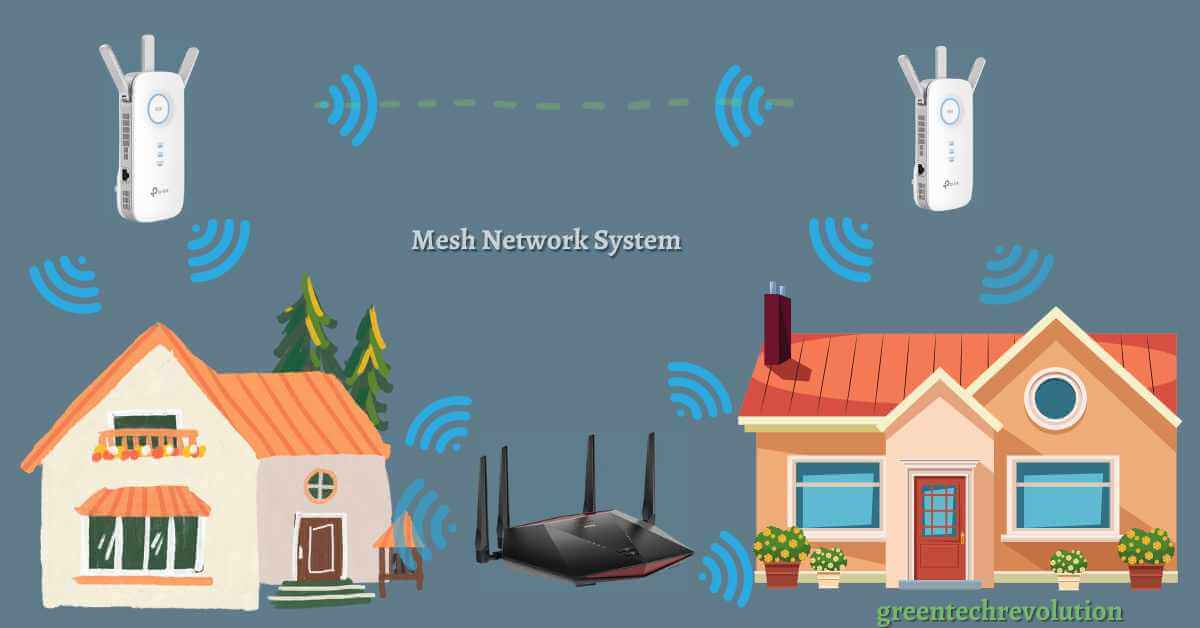




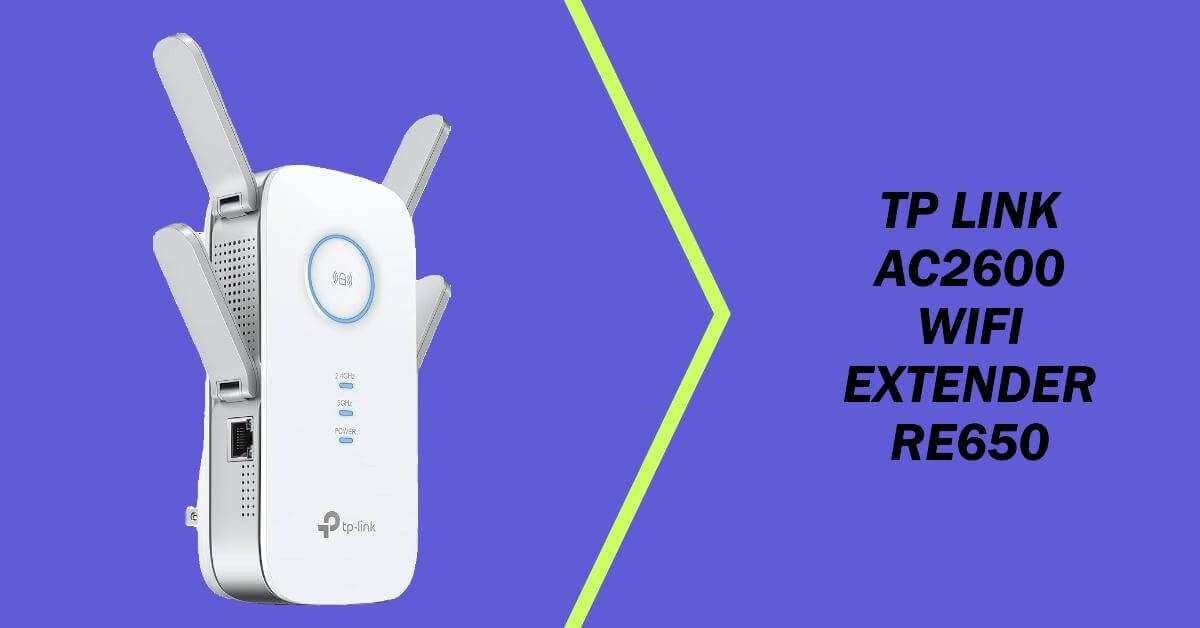
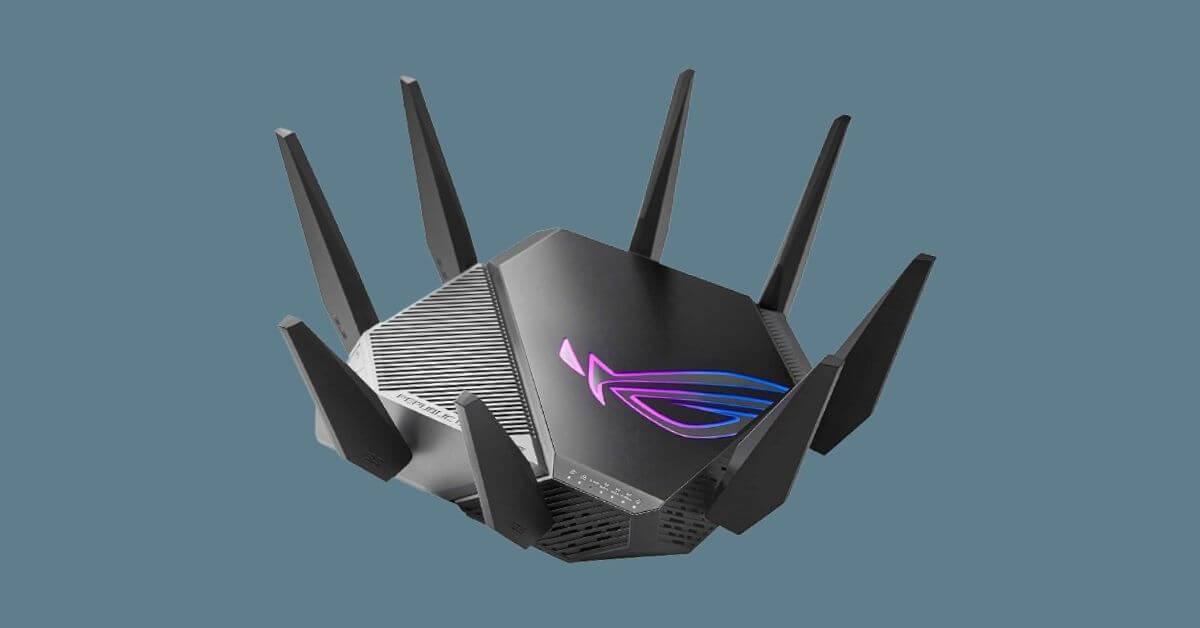
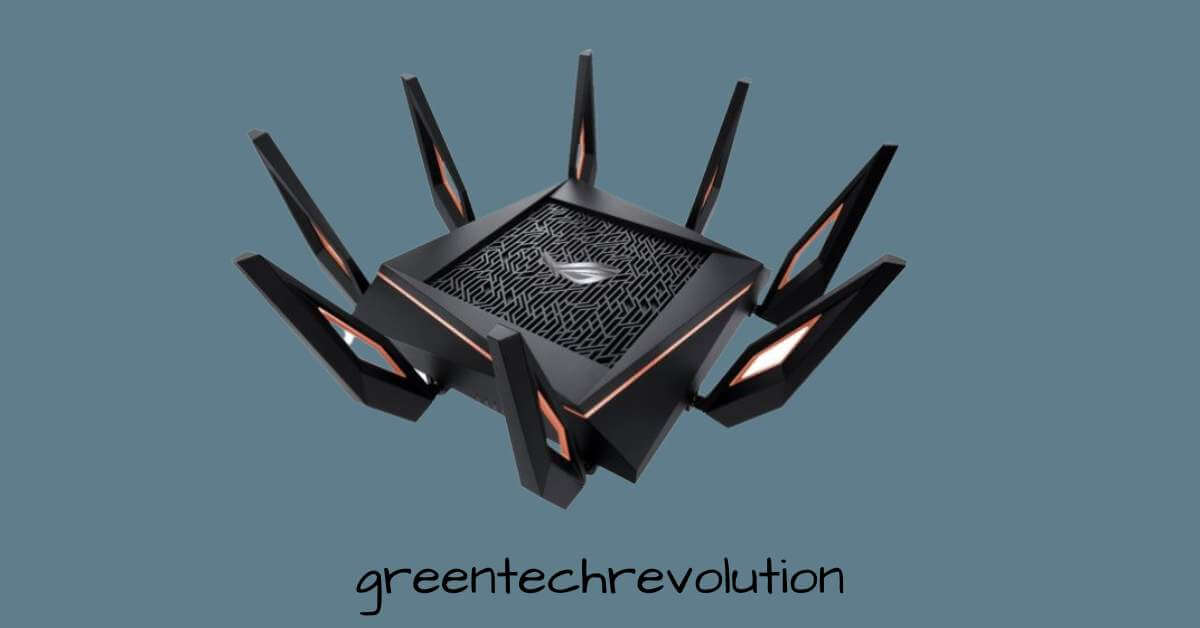
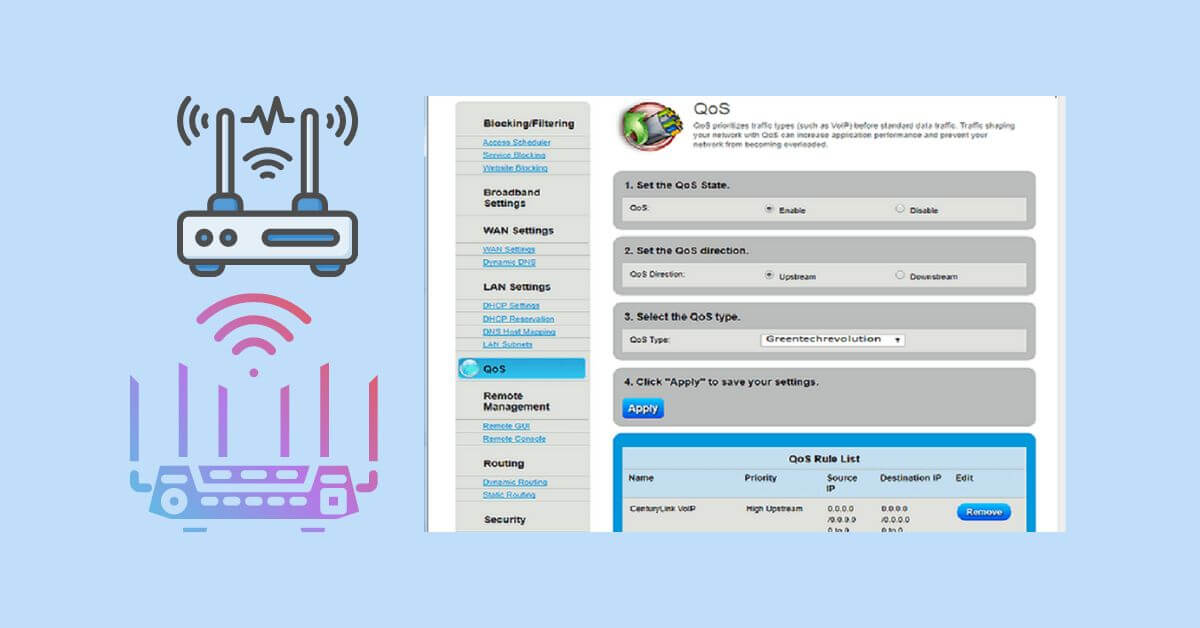
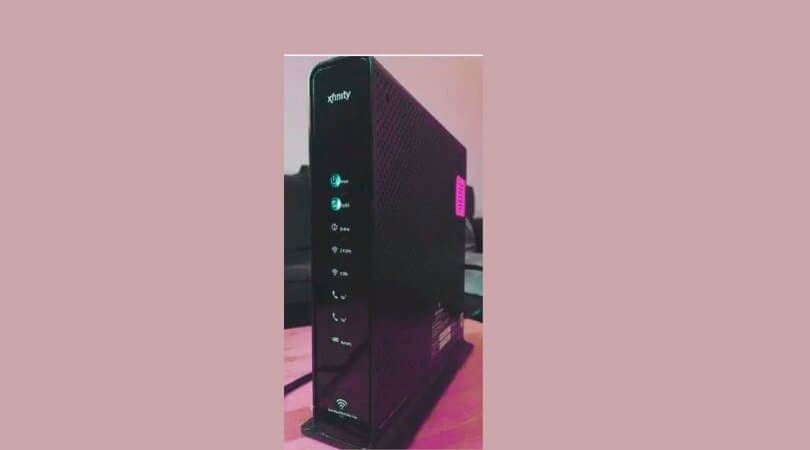
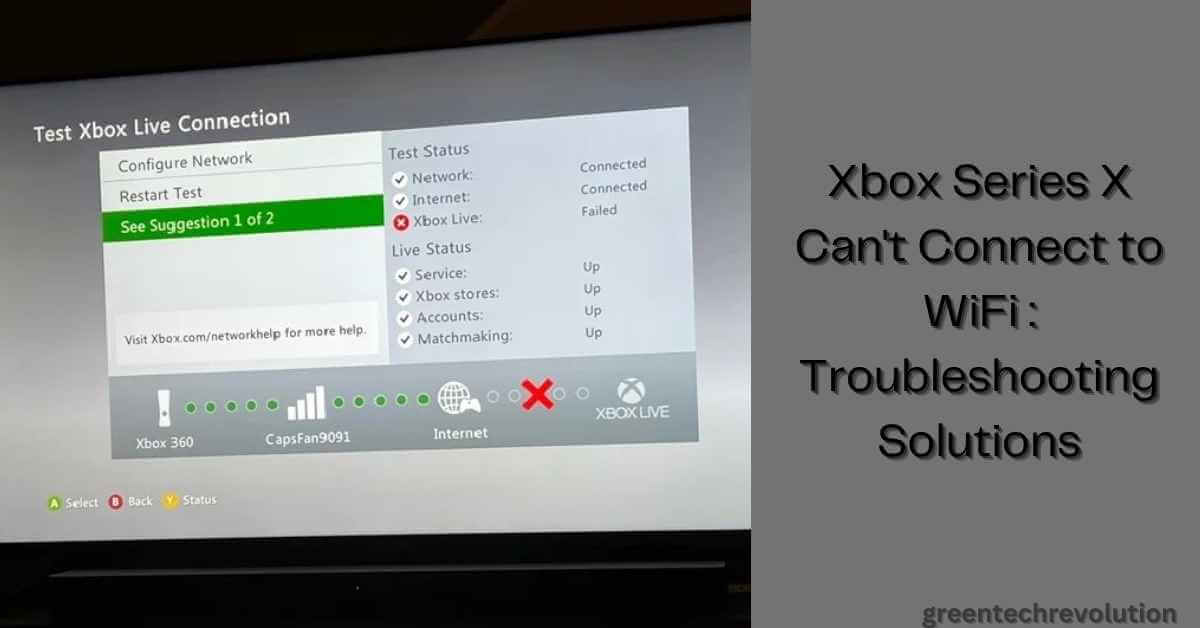
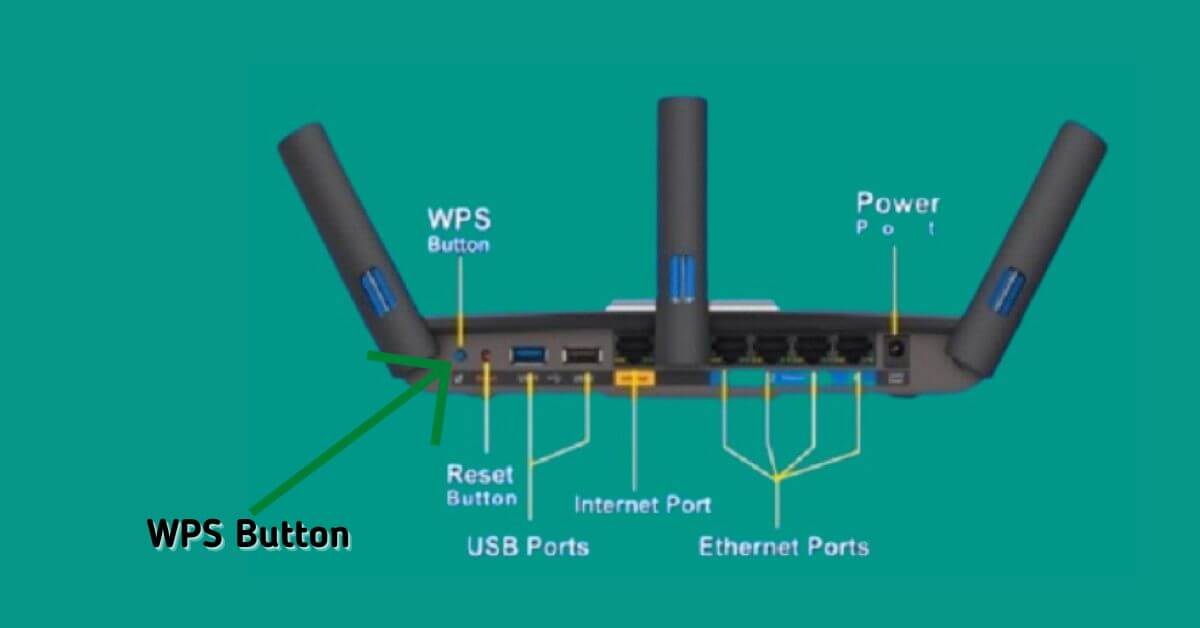
Leave a Reply
You must be logged in to post a comment.